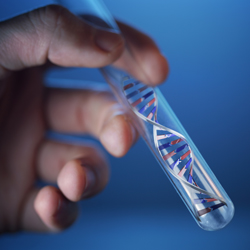Mapping the success of nanobiotechnology
Science is poised at the edge of an explosion of new medical and biochemical methods and therapies. The field mainly responsible is nanobiotechnology. Applications range from biosensors to track toxic molecules to manufactured variants of our own antibodies for targeting cancer cells. Such a wide net of uses and a high technological input equate to many stakeholders with a high investment cost for research and products manufacture. The crucial task of the EU-funded project Euronanobio therefore was to set out a research path to steer the European nanobiotech industry to success over the shortest time in the most efficient way. The main aim was to define the capacity of nanobiotechnology in Europe and then chart the appropriate roadmap for its implementation. First, project members analysed the present systems and networks in research, education and training. Once this was in place, all stakeholders were invited to give their opinion as to how to extend this complex infrastructure. Key players come from governments, research, industry, and, all-importantly for any biotech initiative, advisors on ethics. Euronanobio proposed no less than 15 recommendations for a distributed biotech European network. These involved four dimensions – research, education, technology transfer and ethical legal and social aspects (ELSA). High level dissemination of the findings through the internet and conferences will help to maintain the rapid yet stable evolution of nanobiotechnology. For maximum expert input, project researchers also had ties with two other major projects – the Nanomed round table and the European Technology Platform on Nanomedicine. This forum specifically helped to adapt the roadmap for nanomedicine, arguably one of the most important fields in nanotech. Success of the project's objectives will support the development of nanobiotech products and processes. Furthermore, major concerns of safety and reliability will not be compromised at the expense of commercialisation.







